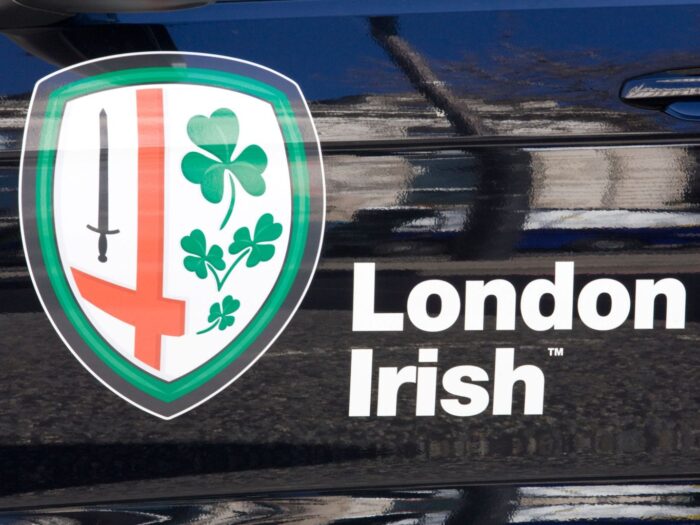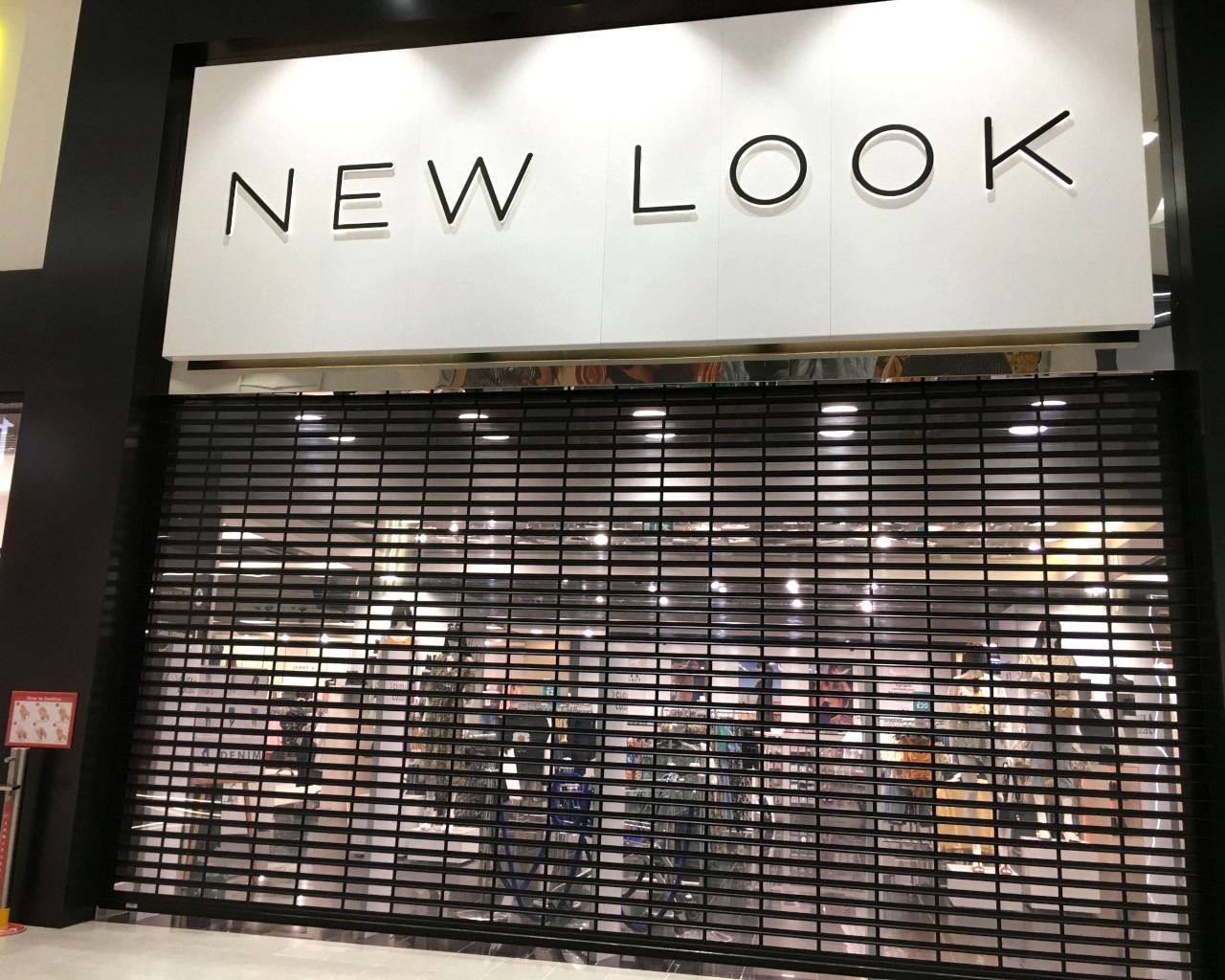New Look is not an interloper on the Irish retail scene.
It opened its first Irish branch in Dún Laoghaire in September 2003, before the heady days of the Celtic Tiger and the influx of UK high-street retailers into Ireland.
Like many other retailers, it expanded heavily during the boom. Yet, unlike many of its rivals, it survived the crash, largely in part due to the largess of its UK parent. By 2020, it had built up a network of 26 outlets here, many in large provincial towns such as Carlow, Clonmel, Wexford and Killarney.
That was a significant year for the business, however, as it was forced to petition the High Court for the appointment of an examiner. Its performance had crumbled over the previous 18 months due to falling sales, rising costs, and ongoing financial woes at its British parent. Its rent bill was the biggest problem – it was tied into long-term leases with unfavourable break clauses.
“The majority of the store leases were created during the property boom in Ireland. These leases contain commercially unfavourable terms including above-market rents, upward only rent review clauses and limited / or no break options,” according to a 2020 report by the accountant Kieran Wallace, submitted to the court to support its examinership application.
Ultimately, the company did not get court protection – instead, it was told to cut individual deals with its landlords. It was a major blow, but the company knuckled down, cut deals and kept on trading.
The world moved on, and most people forget about the retailer’s brush with insolvency.
Until last week.
On Thursday, the company dispatched lawyers to the High Court to seek the appointment of provisional liquidators to the chain. The shutters were immediately pulled down, with the liquidators, Shane McCarthy and Cormac O’Connor of KPMG, reopening the shops today for a clearance sale.
A total of 347 jobs, 15 full-time and 332 part-time, will be affected by the closure of its 26 outlets nationwide. The company was carrying group debt of €15.6 million, and its UK parent had withdrawn support. It was game over.
In a statement issued by the company, New Look said the “difficult but necessary” decision followed a review of its operations. “Our Irish business has struggled for many years due to rising costs and squeezed consumer spending, despite our efforts to turn around the performance,” it said.
The move came as another retailer – Scottish-based Quiz – announced five of the 23 shops it is closing are in Ireland, with a loss of 54 jobs. Outlets in The Square, Newbridge’s Whitewater Shopping Centre and the Athlone Town Centre shopping centre are among those listed for closure, as are stores in Derry’s Richmond shopping centre and the Erneside shopping complex in Enniskillen.
They are not the only retailers facing difficulties. According to data from the accounting firm PwC, retail recorded the highest number of insolvencies of any sector in 2024, accounting for 200 of the 852 insolvencies or 24 per cent. That equated to a rate of 32 per 10,000 businesses, well above the average for other industry sectors.
Many have pointed to the number of insolvencies and the high-profile store closures of New Look and Quiz as a sign of a sector in deep trouble.
The data, however, paints a more nuanced picture.
A recent report by property advisors CBRE outlined how retail had faced several challenges in 2024, including inflation and government changes to employee entitlements.
While cost inflation has stabilised, CBRE said “an additional minimum wage increase in 2025 will prove challenging”, particularly for the food and beverage sector. This, it said, will lead “to further erosion of profit margins”.
Overall, however, the CBRE report was upbeat, detailing low vacancy rates on high streets and in shopping centres, and strong demand for retail space by international chains.
“Shopping centres also continue to experience strong leasing momentum as evidenced by the low vacancy rate of 5.4 per cent at the prime centres,” according to CBRE.
It said Blanchardstown Shopping Centre had seen several new openings in recent months, including The North Face and Hobbs, while Mango and Space NK opened outlets in Dundrum where JD Sports has also doubled its footprint.
“The arrival of new brands such as Alo Yoga and New Balance, as well as the expansion of existing brands like Mango and Space NK, are strong indicators of the occupier confidence in the Dublin retail market,” it said, adding that Dublin city centre will see a raft of new openings this year.
“Spanish fashion retailer Mango will open on Grafton St. at unit 112-113. Build-a-Bear Workshop has also signed at 47 Grafton St on a 10-year lease. Contemporary Italian fashion brand Subdued is set to open its first Irish store at No 3 Grafton St. Kiko, an Italian make-up brand is also opening on both Grafton and Henry St in 2025.”
Retail investment is also tracking well, with 27 retail assets trading in 2024. In three out of four quarters last year, retail received the most investment in the overall commercial property market.
This is unlikely to be repeated this year. “Considering the number of assets that have traded or been refinanced in 2024 and given the size of the Irish market, fewer retail assets will be brought to the market in 2025, and therefore investment spend will be lower,” CBRE said.
However, the firm said it understood that Realty Income Corporation is close to acquiring a portfolio of eight retail parks at a reported price of approximately €200 million. “This transaction will bolster investment volumes in the sector in 2025,” CBRE said.
It is worth noting that rents and capital values have fallen sharply.
According to a recent report by the Central Bank, retail rents have come down by 8.6 per cent since the start of 2019. Capital values, meanwhile, have come down by 37 per cent, although it is worth noting that much of those declines happened during the pandemic when the sector rebalanced itself.
If anything, retail is ahead of other commercial sectors when it comes to price rebalance, something Willie Norse, the new chief executive of property firm TWM, outlined to Tom last week.
“Offices are probably going through the existential challenge that retail went through five years ago,” he said. “Retail has come out of that, and it’s rebalanced in terms of values and rents and occupiers. In fact, it was the most invested sector last year.”
Overall, however, the mood music is relatively positive.
According to the Central Bank, “consumer demand indicators remain strong in the Irish economy, resulting in good trading conditions for domestic firms”, adding that online and point-of-sale card payments also continued their upward trend to July 2024.
“Furthermore, consumer expenditure is projected to continue to grow steadily out to 2026, with both unemployment and inflation expected to remain low and steady,” the regulator said.
This will be of cold comfort to the workers who are losing their jobs at New Look and Quiz. But they might take some comfort that other retailers are already circling to take over the vacant stores – JD Sports, for example, is running the rule over several New Look outlets.
The issues impacting New Look and Quiz appear to be company-specific – the retailers were struggling outposts of UK parents. When you delve into the data, the outlook for retail is not as bleak as it might appear.
Trump and tariffs

Waking up on Wednesday to wall-to-wall coverage of threats by Donald Trump to impose tariffs of 25 per cent or more on EU-made cars and pharmaceuticals from April, we paused for a moment wondering whether The Currency should add to the frenzy.
It turned out Trump’s off-the-cuff remarks were to reporters pressing him to show his cards on such tariffs. The recording of the US president’s answers shows he was thinking aloud, making up answers as he went along with whatever numbers he thought would capture the widest attention. This is what he is very good at.
There was no hint of a plan as to how tariffs would work or their impact on American businesses and consumers, who are also voters. As far as The Currency was concerned, there was no news.
Later that day, BDO’s trade advisors from the US, Canada, Mexico, and Ireland held a webinar where it was confirmed that they and their client companies seemed to be the only ones thinking through the real-life consequences of proposed widespread US tariffs.
One aspect of the discussion was the fate of products, such as cars, whose components travel multiple times across the US-Mexico border before they are sold to American customers. Would they be taxed each time if Trump’s new but suspended duty on Mexican goods eventually came into force?
The issue resuscitated the ghost of Brexit. With the prospect of having to check thousands of lorry crossings at the Irish border between farms, creameries, packaging factories and retailers, the dairy industry alone defeated the proponents of a hard Brexit, and sense eventually prevailed.
Whether there is much sense in the current US government remains to be established, but one shouldn’t underestimate the power of reality.
To get a wider view of Trump and his impact on global affairs, it is well worth reading columns this week by Constantin and Dan.
Elsewhere last week…

Nearly two years after its collapse, London Irish has been spared from total wipeout after the club’s intellectual property and brand were bought by a consortium led by former Formula 1 team owner Eddie Jordan. The successful Jordan-led bid has breathed new life into the club founded in 1898 by a group of Irishmen keen to develop a sporting institution for their compatriots in London. With a return to top-flight rugby penned in for next year, a remarkable revival is on the cards for the embattled club. The new owners spoke to Michael.
Ubotica’s tech is used in satellites to gather and process imagery using AI. The Irish company is pitching its products for better maritime surveillance and a growing space economy. CEO Fintan Buckley spoke with Jonathan.
Kingspan reported €8.6 billion in annual revenues and has lined up plans to seize a bigger share of the US market, even with the “noisy environment” created by Donald Trump. Jonathan assessed the numbers.
The liquidator of Altada has told the AI start-up’s creditors of 10 issues of concern, but its founders say “they acted honestly and responsibly at all times”. Tom was first with the story.
The British inquiry into the 1998 Omagh bombing concluded its initial series of commemorative hearings this week. Despite the Irish Government’s assurances of support for the process, the dynamic of the Good Friday Agreement means it will fall a long way short, according to a column by Conor Brady.


